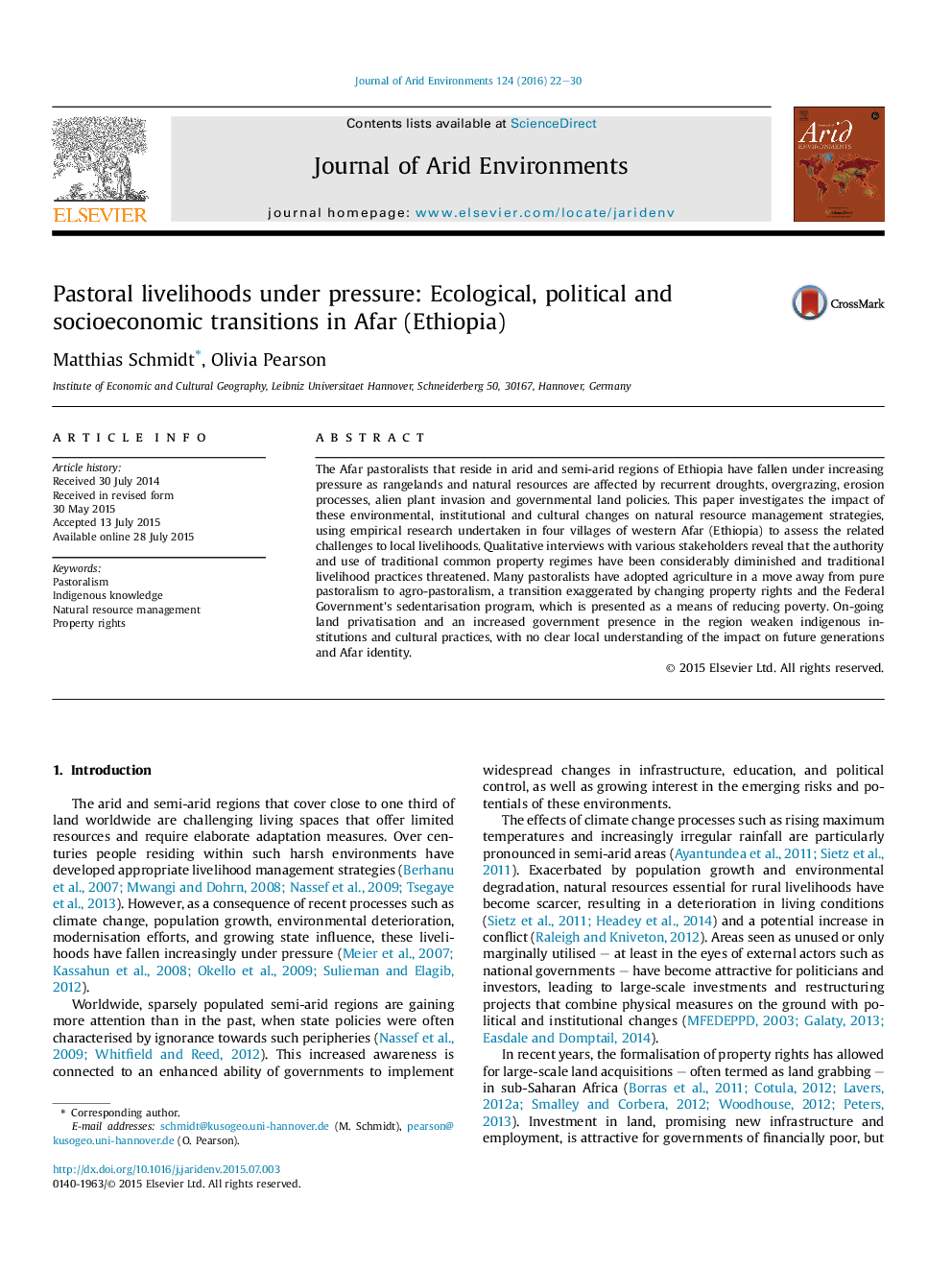| Article ID | Journal | Published Year | Pages | File Type |
|---|---|---|---|---|
| 6303382 | Journal of Arid Environments | 2016 | 9 Pages |
â¢An analysis of ecological, political and socio-economic changes on Afar livelihoods.â¢Land privatisation and altered common property resources weaken pure pastoralism.â¢Traditional natural resource practices and institutions have lost power.â¢A move from pure pastoralism to agro-pastoralism is prevalent in Afar.
The Afar pastoralists that reside in arid and semi-arid regions of Ethiopia have fallen under increasing pressure as rangelands and natural resources are affected by recurrent droughts, overgrazing, erosion processes, alien plant invasion and governmental land policies. This paper investigates the impact of these environmental, institutional and cultural changes on natural resource management strategies, using empirical research undertaken in four villages of western Afar (Ethiopia) to assess the related challenges to local livelihoods. Qualitative interviews with various stakeholders reveal that the authority and use of traditional common property regimes have been considerably diminished and traditional livelihood practices threatened. Many pastoralists have adopted agriculture in a move away from pure pastoralism to agro-pastoralism, a transition exaggerated by changing property rights and the Federal Government's sedentarisation program, which is presented as a means of reducing poverty. On-going land privatisation and an increased government presence in the region weaken indigenous institutions and cultural practices, with no clear local understanding of the impact on future generations and Afar identity.
